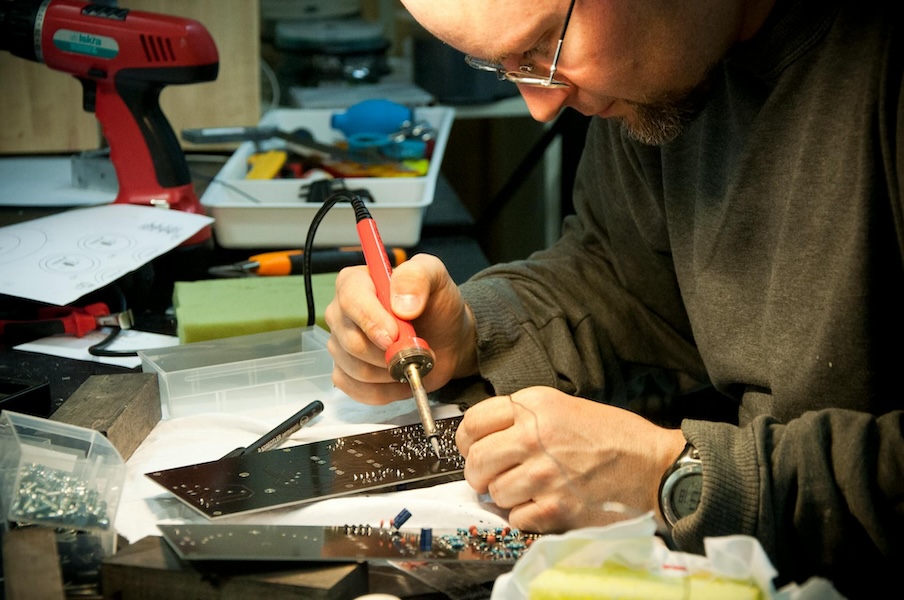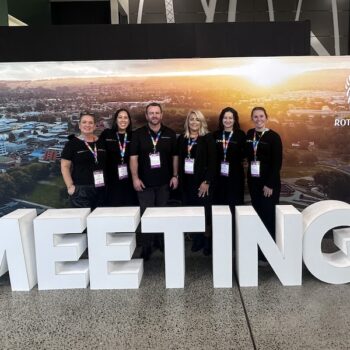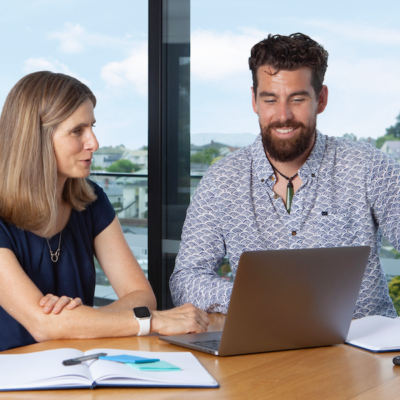You’ve got to fight for your right to repair
We’ve all got the stories. The annoyance at having to bin an expensive machine for want of a single part. Contrasting that with the ancient appliance your Mum has had for 30 years. Now is your chance to scratch that itch.
After years of campaigning by business and community groups, The Consumer Guarantees (Right to Repair) Amendment Bill passed its first reading in parliament on 19 February 2025. It’s now been referred to the Economic Development, Science and Innovation Committee for public submissions.
Which is where you can come in. The Bill has wide-reaching ramifications for all kinds of businesses, the New Zealand economy and even our global sustainable future. So it’s well worth having your say.
While we’re celebrating getting this far, as with any proposed law change, there’s a potential for strengthening it at this stage, as well as ironing out any wrinkles or concerns.
The Bill seeks to require manufacturers to make repair parts and information available to consumers in order to extend the lifetime of consumer products. Importantly for a lot of businesses in New Zealand, the obligations of “manufacturers” in this sense are passed on to importers of the products, which are deemed to represent them.
It’s important to note that the changes would only apply to goods and services bought, hired or gifted for personal, domestic, or household use. This includes both new and second-hand items, such as appliances, vehicles, furniture, food, clothing, software and more. It doesn’t apply to stuff from private sales, even through platforms like Trade Me or eBay, or anything purchased for commercial use or resale.
Jaz O’Donnell is project and partnership manager at the Sustainable Business Network. SBN has joined with Go Well Consulting, Fixed First, Eco-Choice Aotearoa, Circularity, New Zealand Made, The Lever Room and Proxima in its response to the proposals. This included a recent webinar covering some of the key issues, alongside pioneering businesses Blunt and Kowtow.
“In some cases the new obligations proposed in this Bill may seem onerous to some businesses,” she says. “And if they are, we’d encourage you to make a submission, as the key is to get the ball rolling on this in a way that works for everyone. But another key thing is that, ideally, we want obligations like these, especially if taken up worldwide, to start to influence product design and customer service to make repair much more of a norm. That could be transformative.”
Key provisions in the Bill include:
- Availability of repair parts and information: Manufacturers would be required to ensure that repair facilities and spare parts are reasonably available for a reasonable period after the goods are supplied.
- Information access: Consumers would be able to request information, spare parts, software and other tools needed for diagnosing, maintaining or repairing goods.
- Supplier obligations: Suppliers would be required to repair goods within a reasonable time, and if unable to do so, consumers could have the goods repaired elsewhere and claim reasonable costs from the supplier.
In practice, it’s unlikely we’re all going to repair all this stuff ourselves. What is more likely is that this is likely to stimulate local networks of skilled repairers. With the way the proposals currently stand, they’ll be able to access all the tools and information they need from manufacturers to fix things. And their work, and the use of any unbranded parts and accessories, could not negate the manufacturers’ obligations under the Consumer Guarantees Act and their own warranties.
So, ideally, you get to keep that beloved toaster once the dodgy switch is sorted.
For many of us working in sustainability, such provision could make a significant contribution to the necessary development of a circular economy. This is an economy where resources remain in cycles of use and reuse and are never abandoned to become pollution and waste.
In a world of finite resources, this is really the only route to sustainability for an industrialised civilisation. This is especially true of a remote island nation such as Aotearoa New Zealand. As climate change and other elements of the global poly-crisis increasingly bite, including the associated geopolitical instability, we’re faced with particular challenges:
How can we:
- Minimise the amount of products being sent to this country by foreign companies, that end up as costly and polluting waste in our landscape and oceans?
- Help Kiwi families to lower the cost of living through repair?
- Help stimulate high quality work in repair as a growth sector for the economy?
- Protect our way of life from the growing disruptions?
These, and the role you want to play in all this, might be considerations as you submit your thoughts on this important political change.
You will, won’t you?






